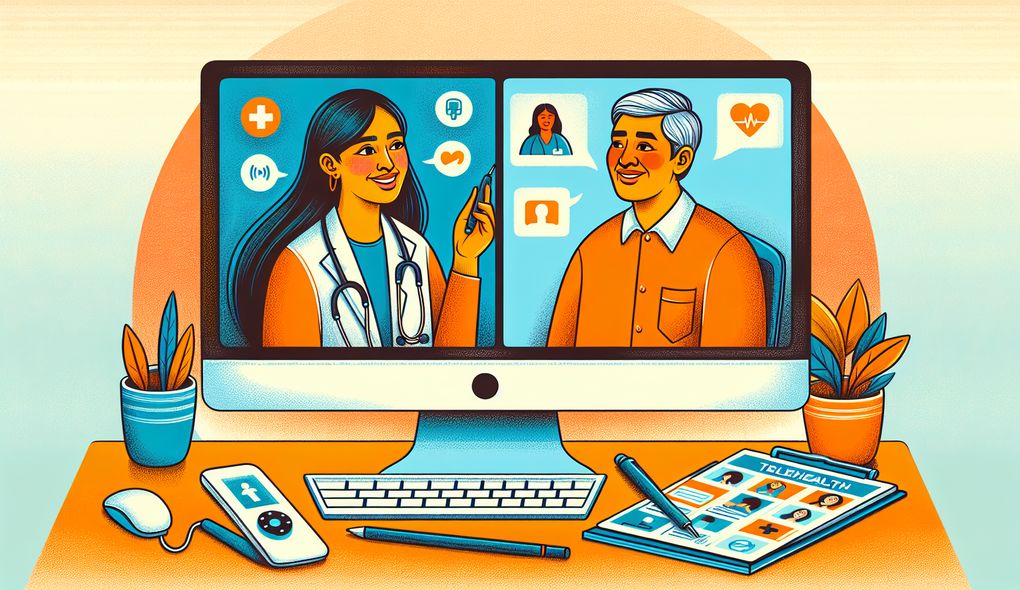Tell us about a time when you had to provide urgent care remotely.
INTERMEDIATE LEVEL

Sample answer to the question:
One time, I had to provide urgent care remotely when a patient reached out to me through our telehealth platform. The patient was experiencing severe abdominal pain and was unable to go to the clinic. I quickly assessed their symptoms, asked relevant questions, and reviewed their medical history on our electronic medical records system. Based on the information, I suspected appendicitis and advised the patient to go to the nearest emergency room. I stayed connected with the patient throughout the process, providing support and answering their questions. This experience showcased my ability to effectively provide urgent care remotely and make critical decisions based on limited information.
Here is a more solid answer:
I would like to share an experience where I had to provide urgent care remotely to demonstrate my skills and experience in the context of the Telehealth Nurse Practitioner role. One evening, I received a call from a patient who was experiencing chest pain and difficulty breathing. Through our telehealth platform, I conducted a thorough assessment, asking detailed questions about their symptoms and medical history. I quickly recognized the severity of the situation and made the decision to recommend immediate medical attention. I guided the patient on what to do while they waited for emergency services to arrive, providing reassurance and calming their anxiety. Throughout the process, I maintained clear and concise communication, leveraging my strong verbal and written skills. This experience highlights my ability to assess and manage urgent situations remotely, leveraging the benefits of telehealth technology while providing empathetic care.
Why is this a more solid answer?
The solid answer provides a more comprehensive example of when the candidate had to provide urgent care remotely. It includes specific details about the situation, the candidate's actions, and the use of telehealth technology. It also highlights the candidate's strong verbal and written communication skills, ability to make critical decisions independently, and provide empathetic care.
An example of a exceptional answer:
Let me share an exceptional experience that truly showcases my skills and expertise as a Telehealth Nurse Practitioner. One day, I received an urgent call from a patient who was in severe pain and unable to move. Through our telehealth platform, I conducted a thorough assessment of the patient's symptoms, utilizing my strong clinical skills to identify potential causes. It became evident that the patient was experiencing a possible spinal injury. With limited time, I swiftly coordinated with local emergency services to ensure immediate assistance. I guided the patient's family on providing initial care, including stabilizing the patient's condition and minimizing further harm. Throughout the process, I maintained constant communication, providing emotional support to both the patient and their family. This experience truly demonstrates my ability to provide urgent care remotely, leveraging technology, clinical expertise, and effective communication to deliver high-quality patient care in critical situations.
Why is this an exceptional answer?
The exceptional answer provides a highly detailed and specific example of when the candidate had to provide urgent care remotely. It showcases the candidate's ability to handle a complex medical situation, make quick decisions, coordinate with other healthcare professionals, and effectively communicate with the patient and their family. It encompasses all the evaluation areas mentioned in the job description and goes above and beyond in demonstrating the candidate's expertise and experience in remote care.
How to prepare for this question:
- Familiarize yourself with various telehealth platforms and electronic medical records (EMR) systems commonly used in the industry. Practice navigating through these systems to ensure proficiency.
- Review case studies or scenarios related to remote care and telemedicine ethics to enhance your ability to make critical decisions independently.
- Develop your communication skills, both verbal and written, to effectively convey information and build rapport with patients virtually. Practice active listening and empathy.
- Stay updated with the latest regulations and best practices in telehealth. Familiarize yourself with the ethical considerations and legal requirements of practicing remote care.
- Gain experience in dealing with urgent or critical medical situations. Practice making quick decisions based on limited information and effectively managing emergencies remotely.
What are interviewers evaluating with this question?
- Verbal and written communication skills
- Proficiency with electronic medical records (EMR) and telehealth platforms
- Ability to provide empathetic care and build rapport with patients virtually
- Strong clinical skills and ability to make decisions independently

